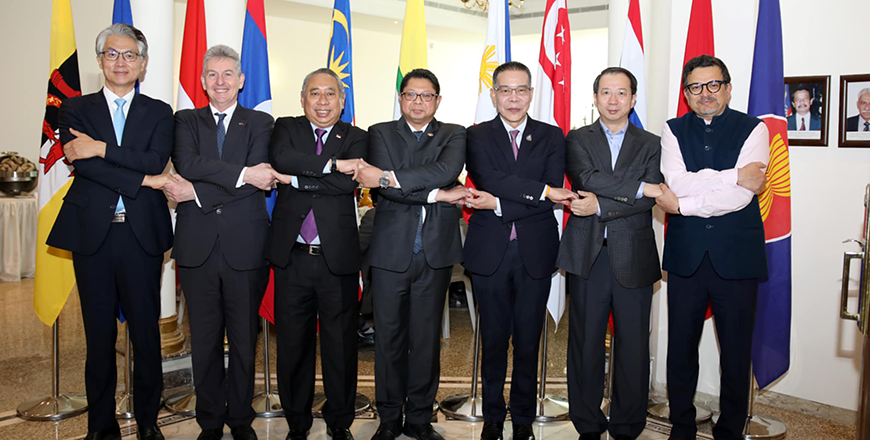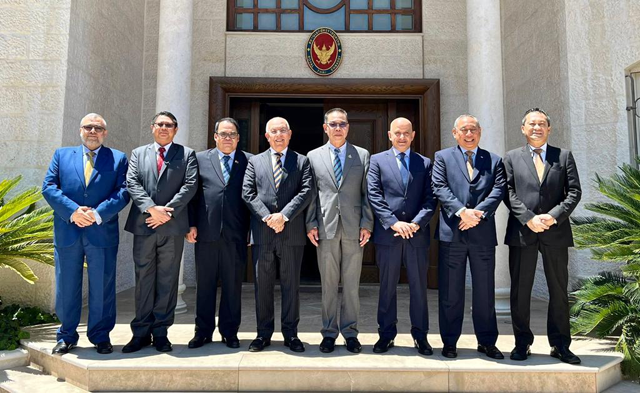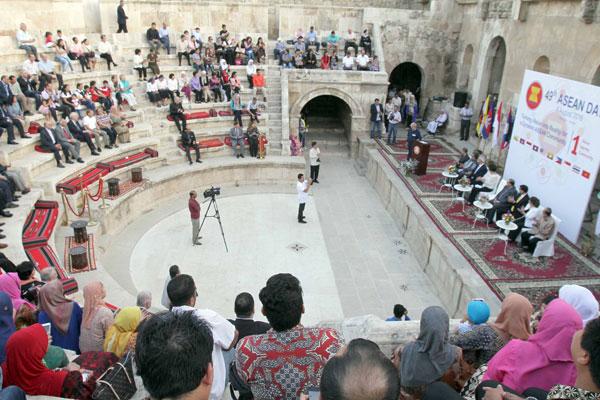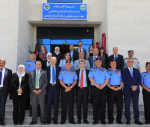You are here
ASEAN Colloquium explores regional cooperation, future priorities
By Sophie Constantin - Feb 15,2025 - Last updated at Feb 15,2025
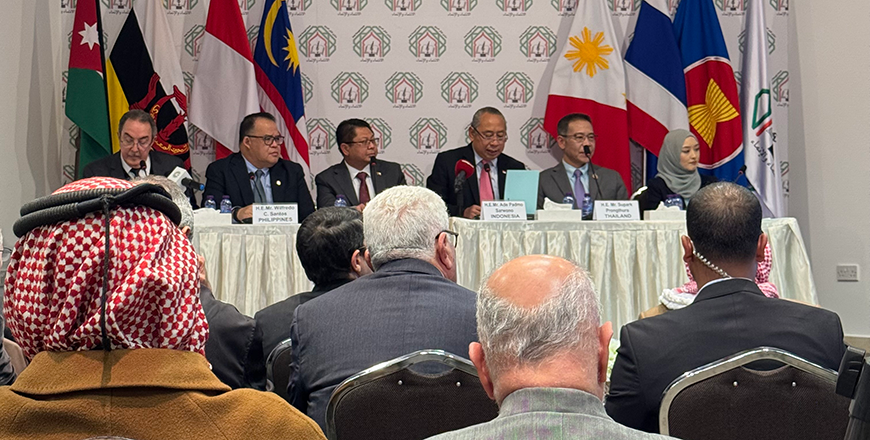
ASEAN’s core objectives are to foster economic growth, social progress, and cultural development (Photo by Sophie Constantin)
AMMAN — A colloquium titled “The ASEAN Journey: Background, Reflections, and Priorities” took place on Wednesday at the Arab Thought Forum, jointly organised by the ASEAN Committee in Amman and the Arab Thought Forum.
The event aimed to promote ASEAN’s role and efforts in maintaining peace, stability, and prosperity in the Southeast Asia Region, while also provided insights into the key priorities and deliverables of Malaysia’s Chairmanship.
The speakers included Ade Padmo Sarwono, Ambassador of Indonesia and Mohamad Nasri Bin Abdul Rahman, Ambassador of Malaysia. Additional contributions came from Supark Prongthura, Ambassador of Thailand, Wilfredo C. Santos, Ambassador of the Philippines and Nurunnajibah Adanaan, Charge d’Affaires of Brunei Darussalam.
Founded in 1967 by Indonesia, Thailand, the Philippines, Malaysia and Singapore, ASEAN has since expanded to include Brunei, Vietnam, Laos, Myanmar, and Cambodia.
Its core objectives are to foster economic growth, social progress, and cultural development through enhanced trade and investment among member states, strengthen regional peace and stability by promoting unity and ASEAN centrality, encourage regional collaboration and mutual assistance by fostering a culture of sustainability in all dimensions, support the study of Southeast Asia, and enhance cooperation with other regional and international organisations.
Under Malaysia’s chairmanship in 2025, the theme “Inclusivity and Sustainability” was officially unveiled by the Malaysia prime minister during the closing ceremony of the 44th and 45th ASEAN summits in October 2024 in Vientiane, Laos.
Malaysia’s leadership aims to empower society through social and economic justice while ensuring long-term sustainability and well-being.
ASEAN faces challenges including geostrategic shifts, conflicts in Myanmar and the South China Sea, climate change, development gaps, and other emerging global trends.
Moving forward, ASEAN seeks to recalibrate its priorities to remain resilient, dynamic, and responsive, ensuring that the people remain at the centre of the regional integration process.
ASEAN has also expressed "grave concern" over the war in Gaza and the Middle East, condemning attacks on civilians and civilian infrastructure. The organisation welcomed the ceasefire agreement in Gaza and urged its immediate and comprehensive implementation.
ASEAN called for the unconditional release of all hostages, especially ASEAN nationals, and urged all parties to work towards a peaceful resolution in pursuit of a two-state solution.
ASEAN also emphasised the need to intensify humanitarian assistance, including restoring UNRWA’s role in supporting those in need.
As Malaysia leads ASEAN in 2025, its priorities "must be transformative and impactful," ensuring that inclusivity, innovation, and sustainability remain central to the ASEAN Community agenda.
A whole-of-government approach is needed to coordinate national efforts across ASEAN’s three pillars of cooperation. Collaboration efforts with ASEAN partners should be explored and identified in advance to strengthen the organisation’s global engagement and regional leadership.
Related Articles
AMMAN — Ambassador of Malaysia to Jordan Mohamad Nasri Abdul Rahman hosted a reception on Wednesday to introduce the logo and theme of The A
AMMAN — The Amman Chamber of Commerce (ACC) and ambassadors from the Association of Southeast Asian Nations (ASEAN) on Wednesday agreed to p
AMMAN – There is a “great” potential for Jordan and Southeast Asian countries to strengthen trade and investment flows, Philippine Ambassado


